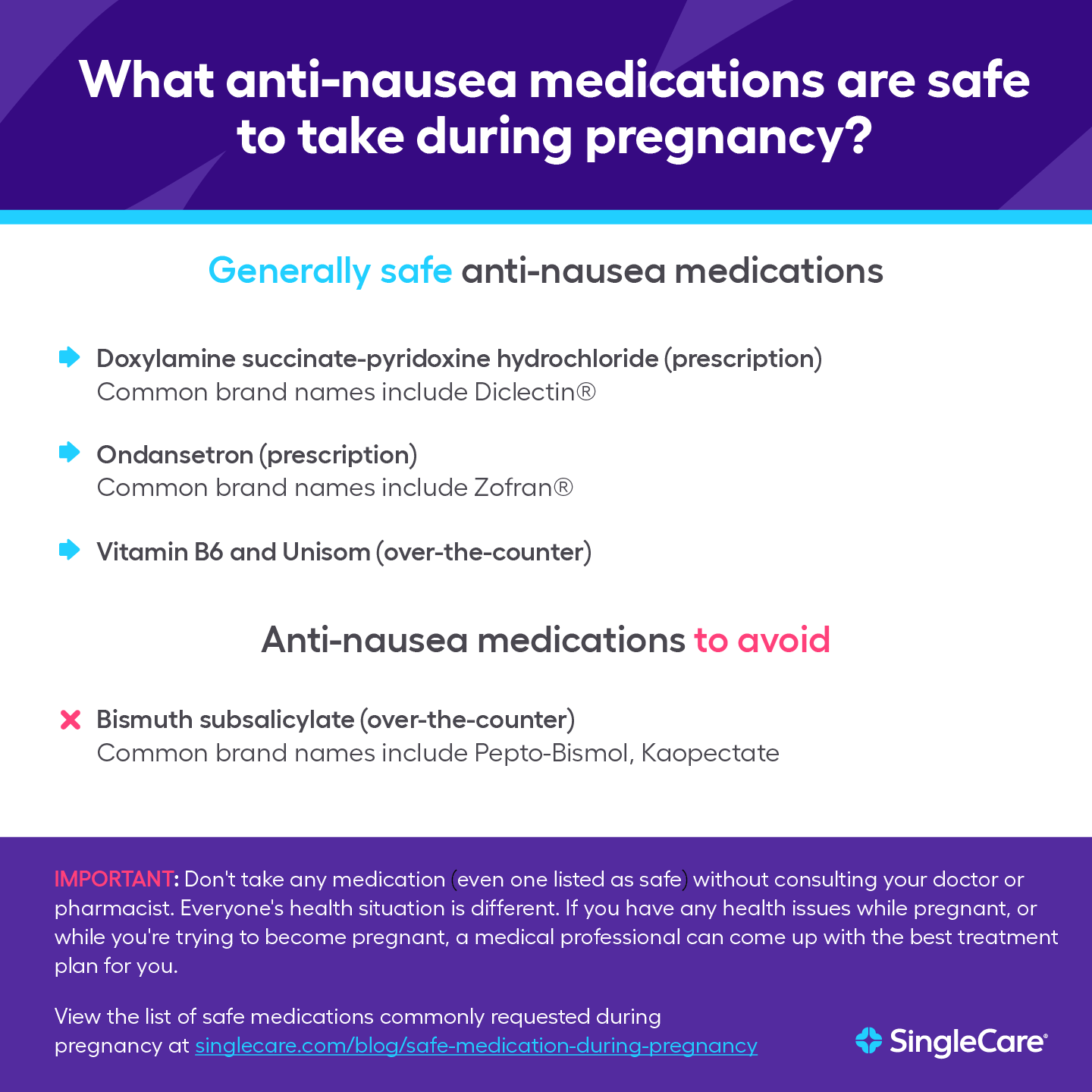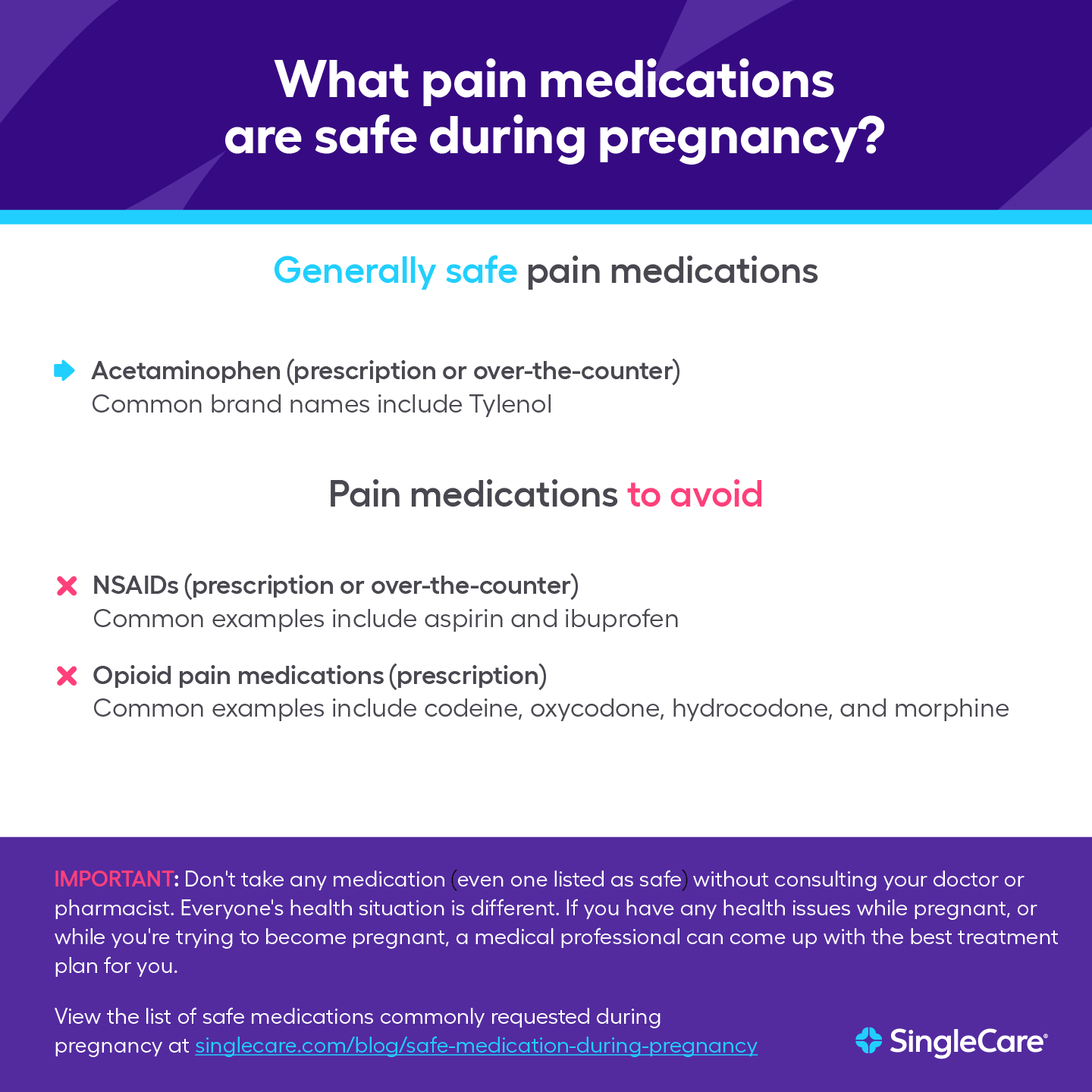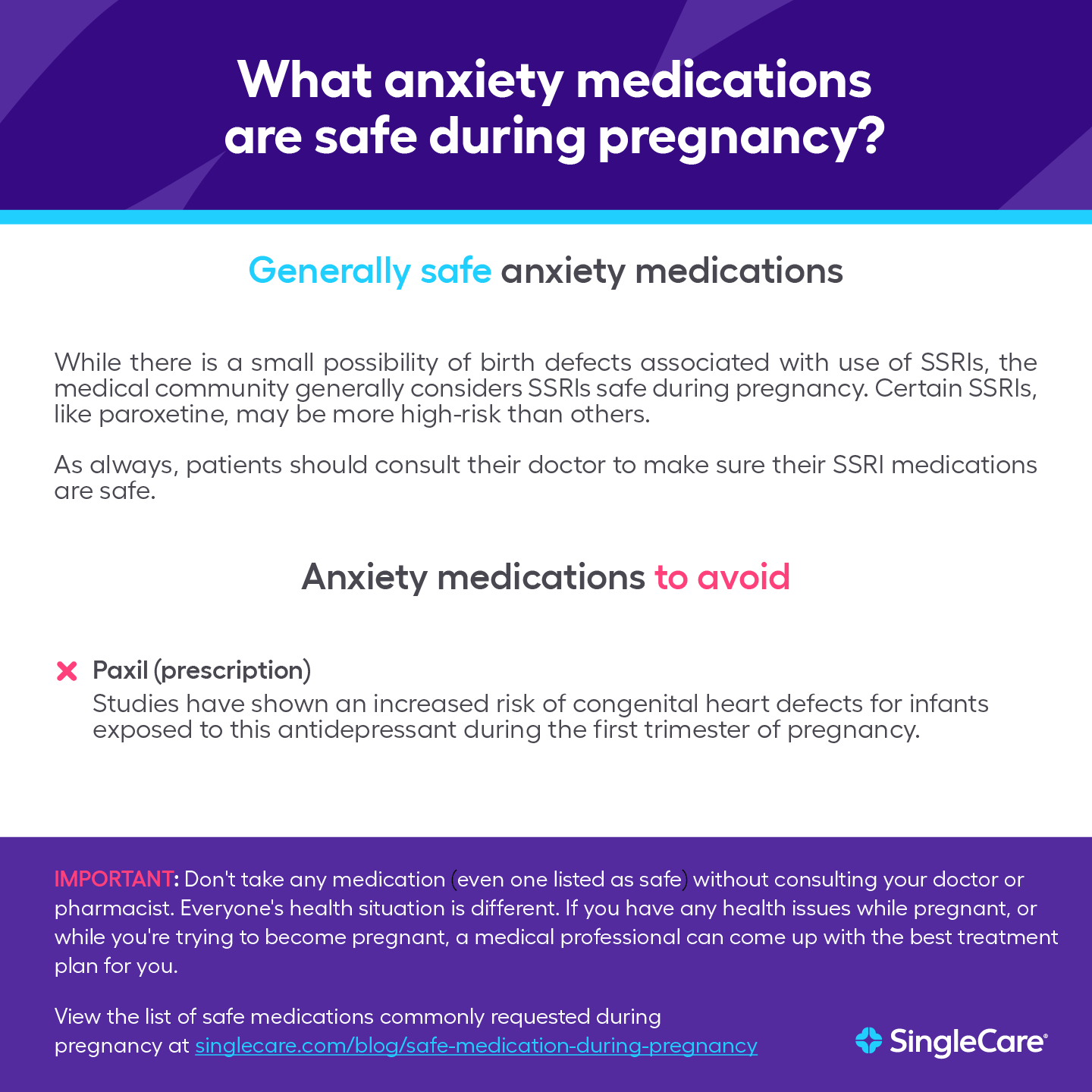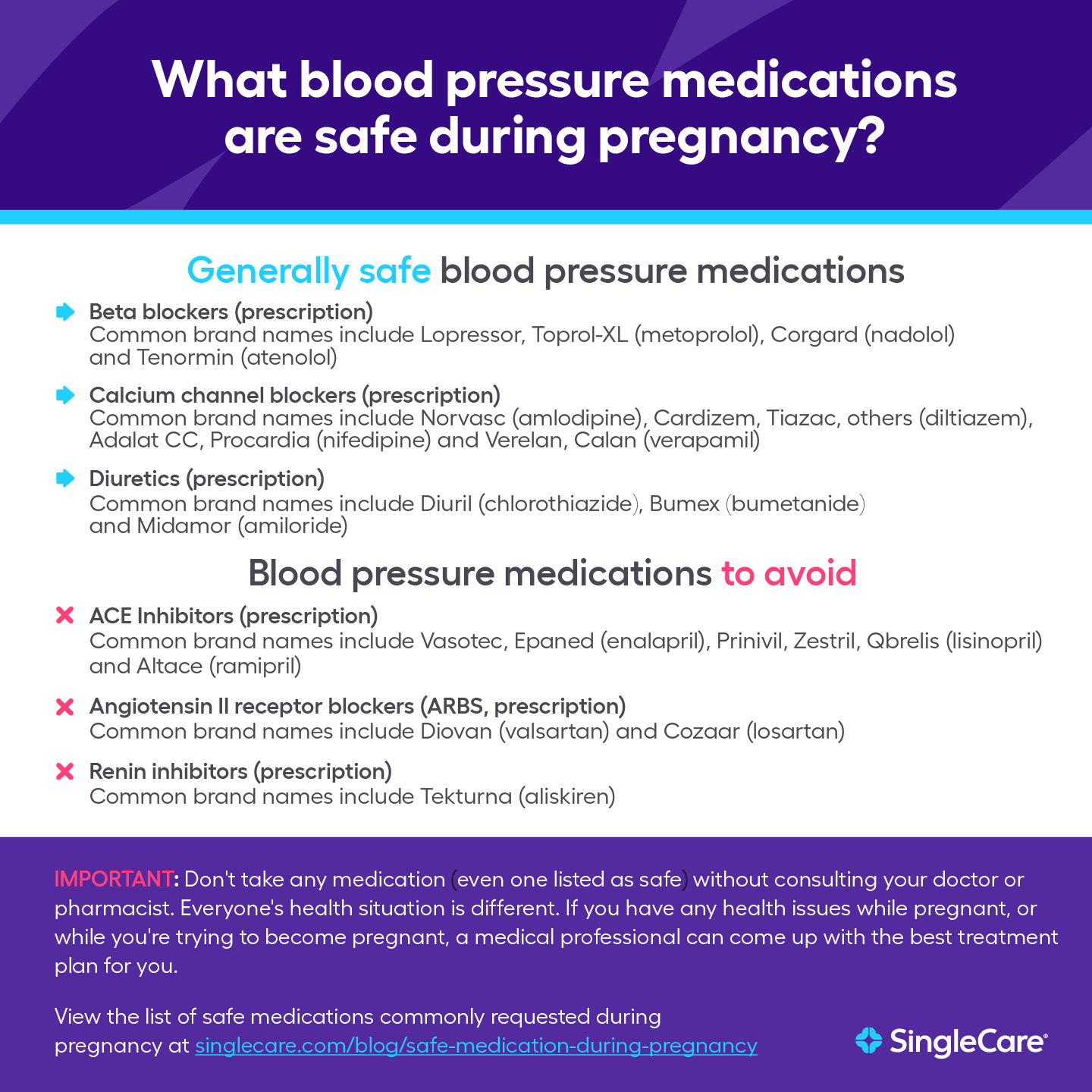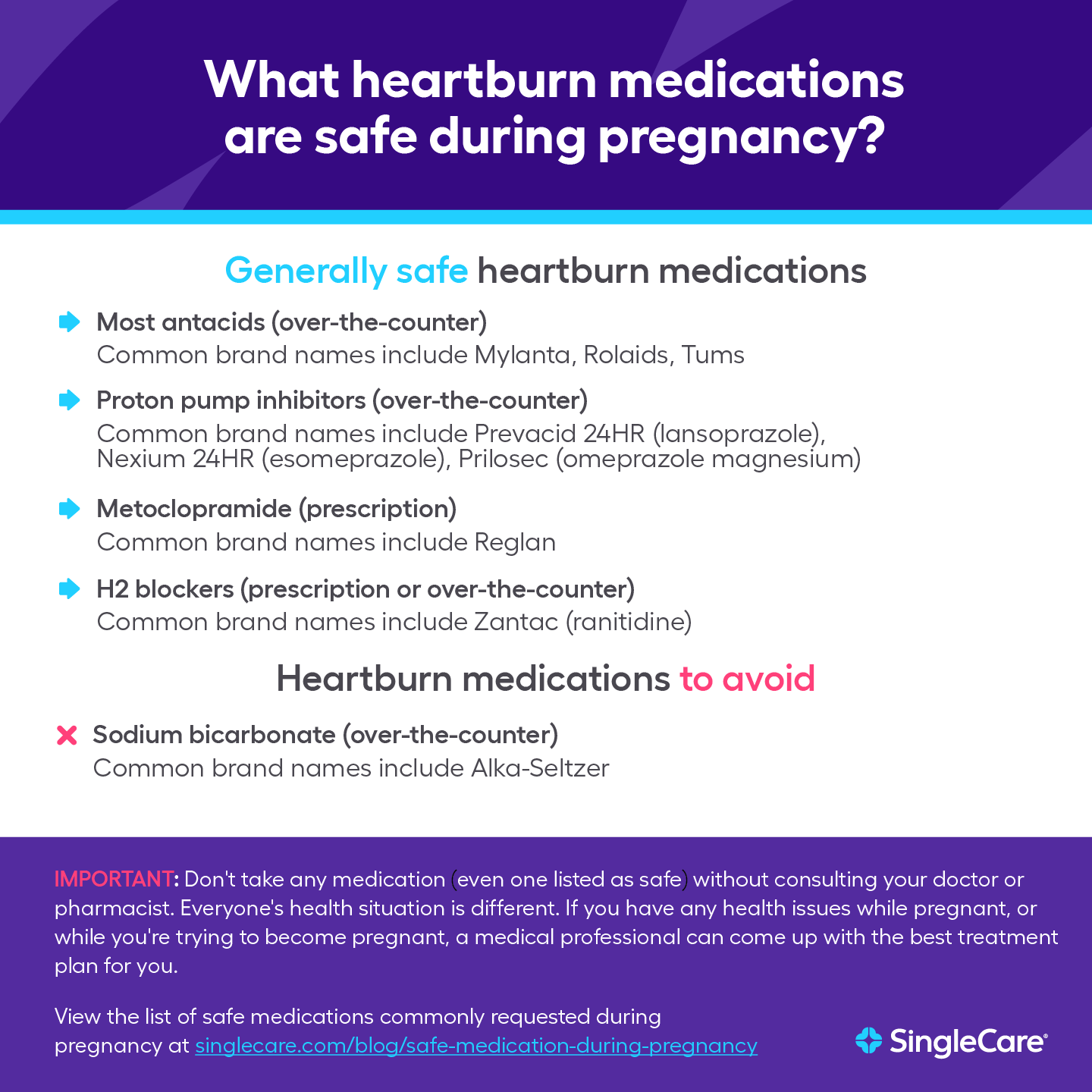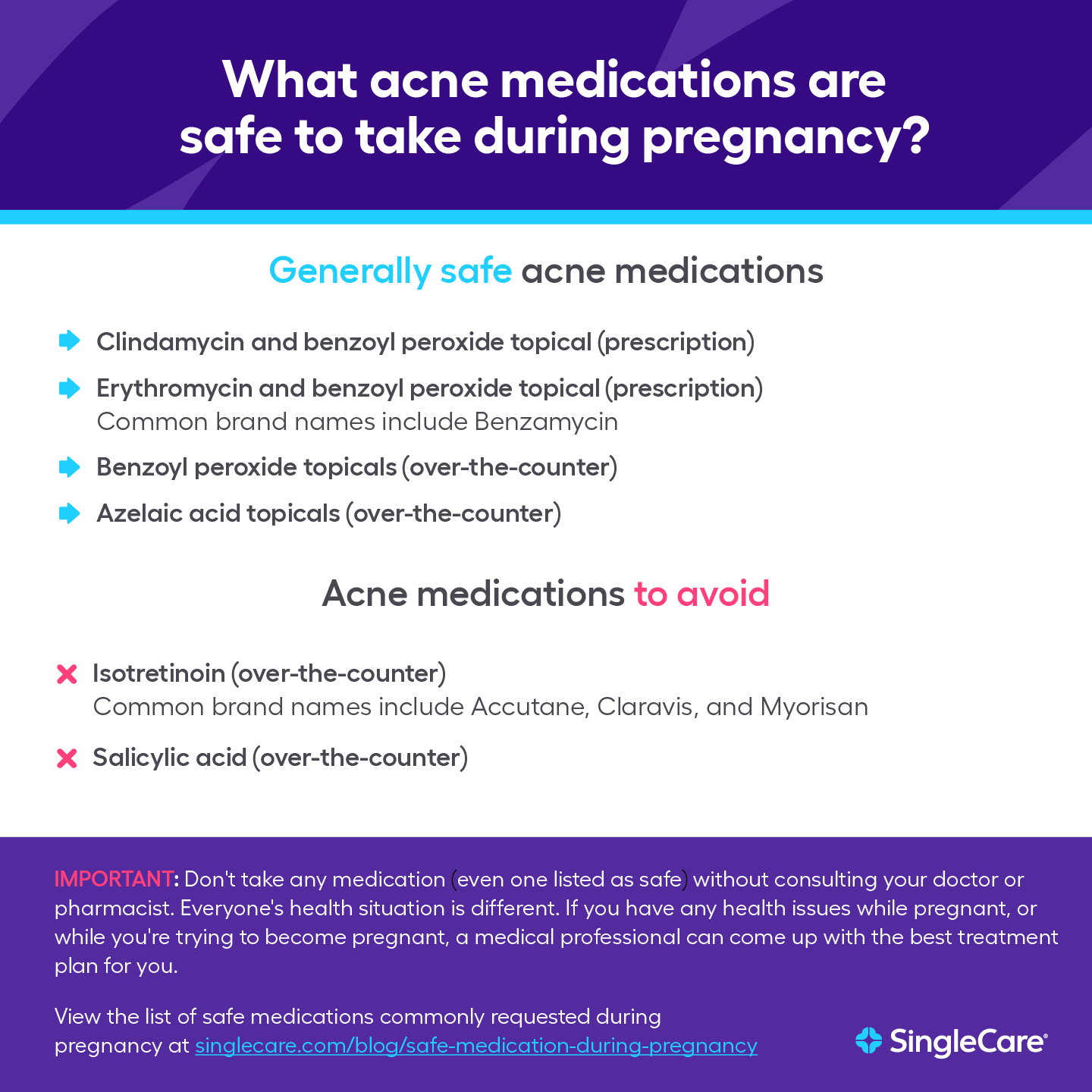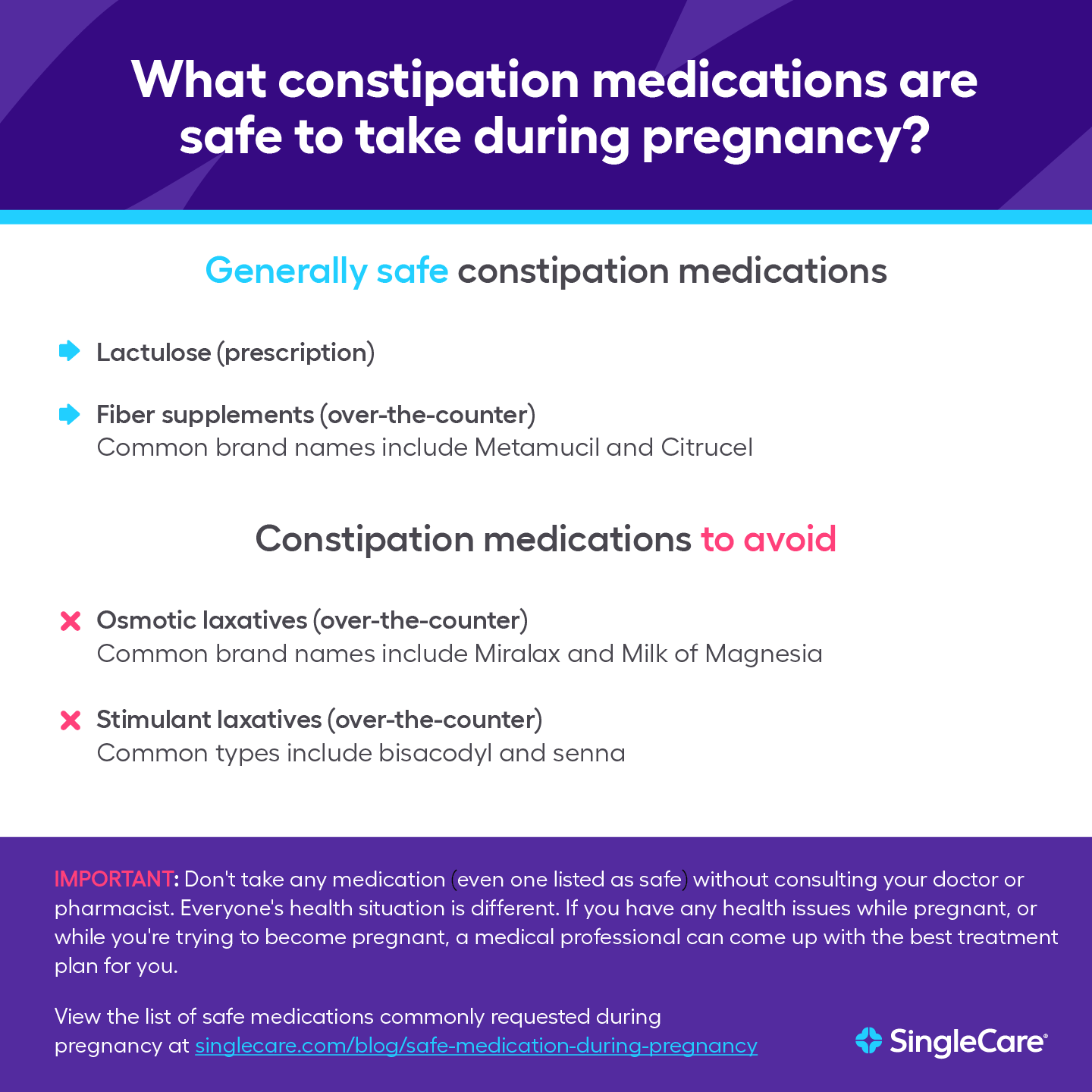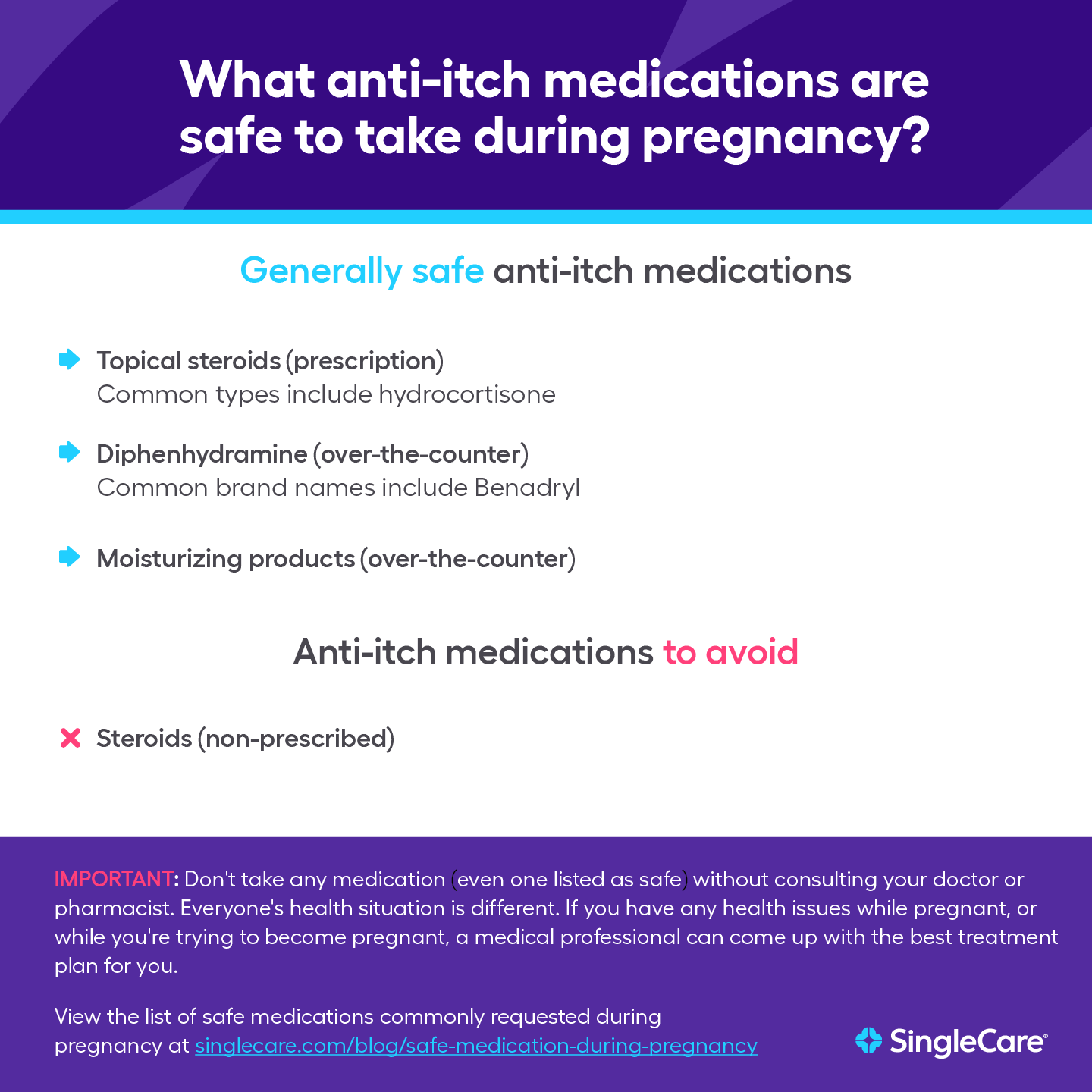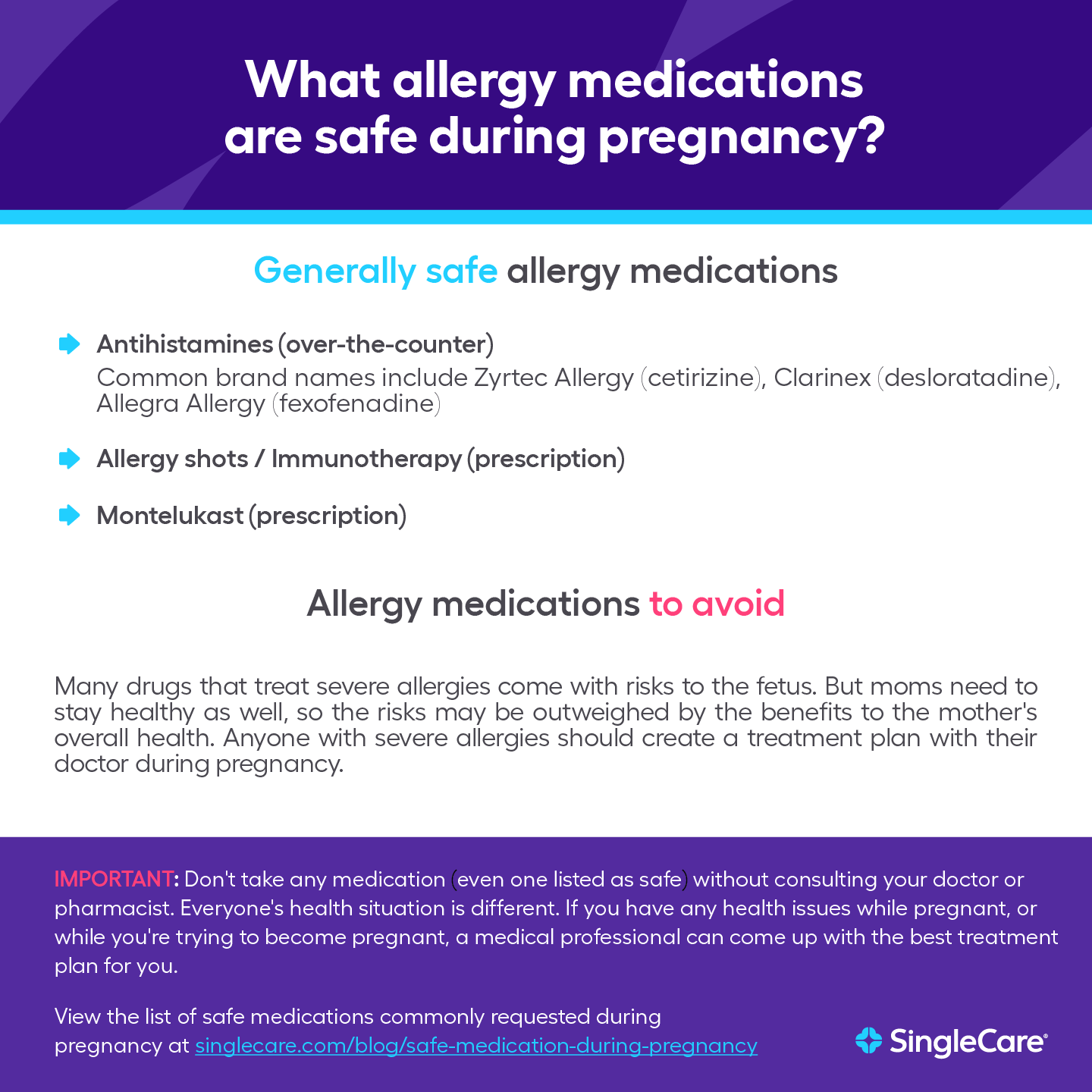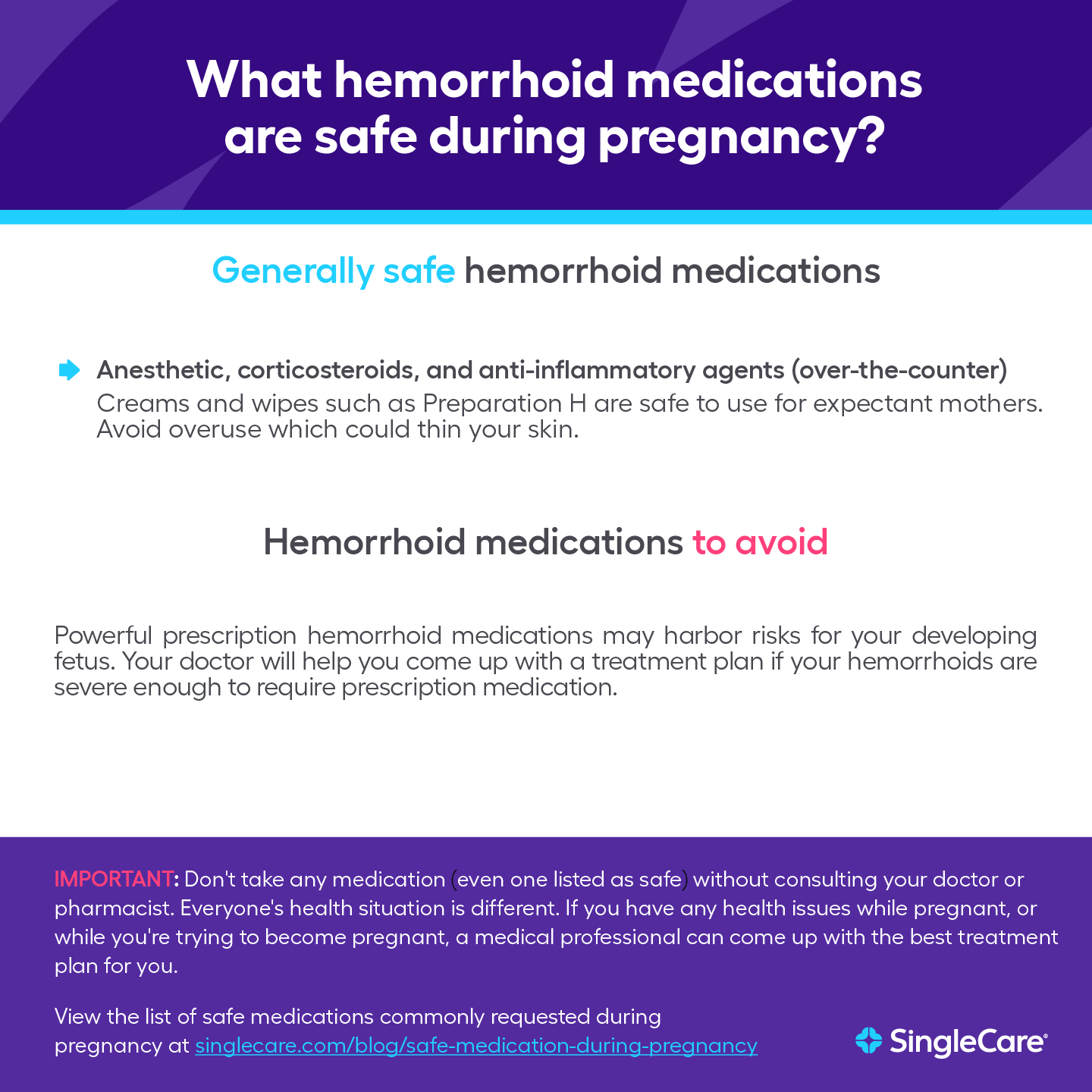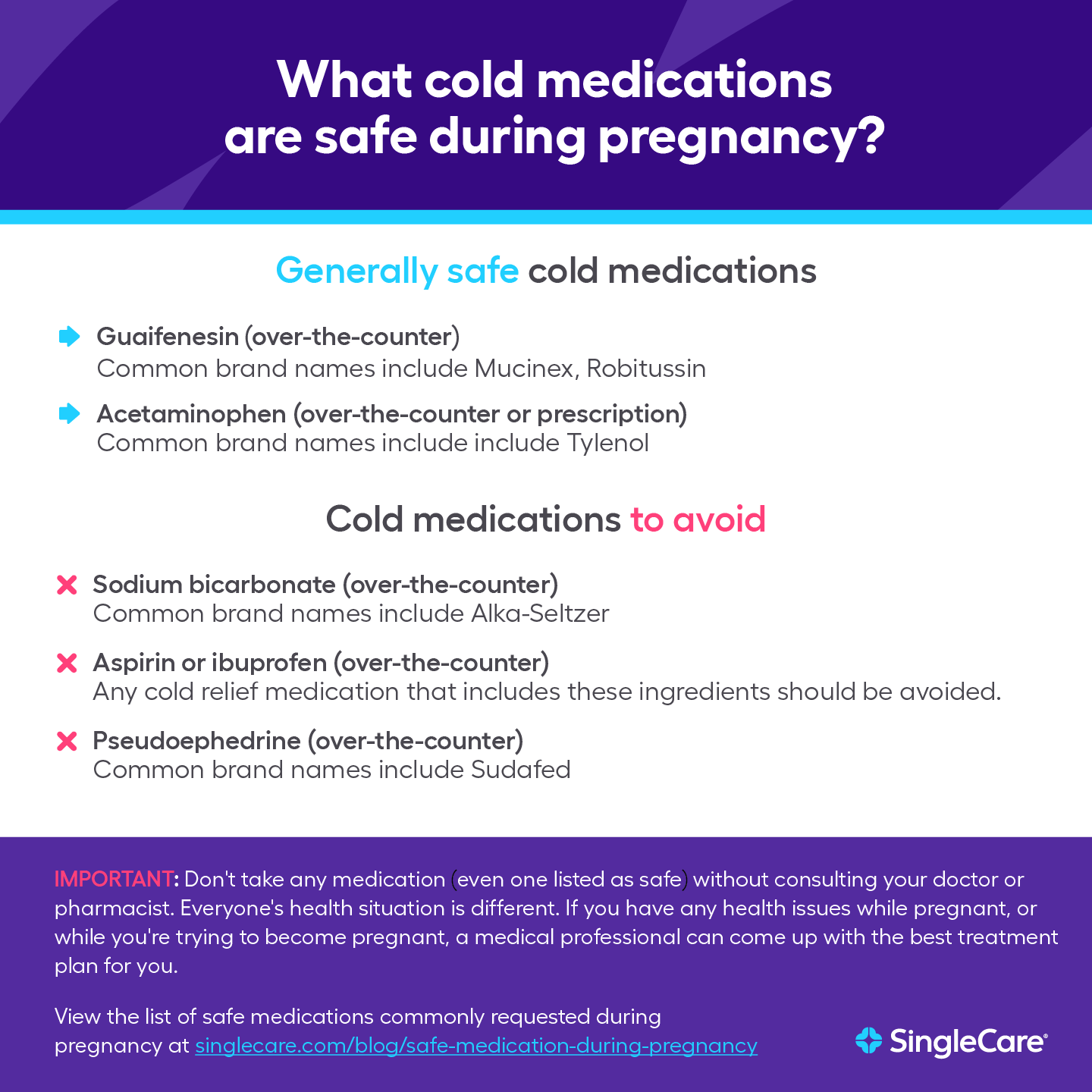Key takeaways
Always consult your healthcare provider before taking any medication or supplement while pregnant.
There are many medications and supplements that are considered generally safe to take during pregnancy.
Some common medications that are considered safe to take during pregnancy include Zofran, Tylenol, certain SSRIs, Benadryl, most antacids, and Mucinex.
Medications that are considered safe during pregnancy are those that are not believed to increase the risk of congenital disorders.
Certain medications should be avoided during pregnancy, including ibuprofen, Xanax, and Valium.
From the moment you get the happy news—that you’re an expectant parent—your priority is doing what’s best for your child. An important part of keeping a growing fetus healthy during pregnancy is learning which medications are safe to take.
Congenital disorders occur in 3 to 5 out of every 100 pregnancies. This is called the background rate. Drugs considered safe during pregnancy are those that are not believed to increase the risk of congenital disorders.
It’s important to note: You should not take any medication (even the one listed below as safe) without consulting your doctor or pharmacist. Everyone’s health situation is different. If you have any of the health issues below while pregnant or while you’re trying to become pregnant, a medical professional will be able to recommend the best treatment plan for your specific circumstances.
What anti-nausea medications are safe during pregnancy?
Safe anti-nausea medications during pregnancy include the prescription drug Zofran (ondansetron) and the over-the-counter supplement vitamin B6—among others.
Safe prescription anti-nausea medications
- Diclegis (doxylamine succinate-pyridoxine hydrochloride): Studies of congenital disorders among pregnant women have found no indication that taking Diclegis increases the risk of congenital disorders.
- Zofran (ondansetron): A 2018 study found that pregnant women who were prescribed Zofran to treat morning sickness did not show an increased likelihood of having a baby with a birth defect.
Safe over-the-counter anti-nausea medications
- Vitamin B6 and Unisom: The combination of the nontoxic supplement vitamin B6 (pyridoxine) and the over-the-counter sleep aid Unisom (doxylamine) may sometimes reduce nausea in pregnant women.
Anti-nausea medications to avoid
- Pepto-Bismol, Kaopectate, and other medications containing bismuth subsalicylate: Salicylates may cause congenital disorders in developing fetuses. No studies have demonstrated that they are safe to take during pregnancy.
What pain medications are safe during pregnancy?
The safest pain medication during pregnancy is acetaminophen, which is sold over the counter as Tylenol (among other brand names). Your doctor may also prescribe acetaminophen.
Recent studies indicate that acetaminophen use in pregnancy is not associated with an increased risk of autism, ADHD, or intellectual disability. Acetaminophen use is also not associated with an increased risk of birth defects.
In the management of persistent headaches, the American College of Obstetricians and Gynecologists (ACOG) recommends supplementing acetaminophen with caffeine for the treatment of headaches that do not respond to acetaminophen alone. It is important to adhere to the safe daily limits for acetaminophen and caffeine.
Many over-the-counter pain relievers, particularly those for headaches or migraines, contain caffeine. While limited caffeine consumption (less than 200 mg per day) may be safe during pregnancy, it’s important to be aware of potential sources of caffeine to ensure you aren’t exceeding the recommended limit. Higher doses of caffeine may be associated with higher rates of miscarriage.
Prescription medication metoclopramide combined with diphenhydramine is recommended for the treatment of persistent migraine headaches unresponsive to over-the-counter therapies. The use of metoclopramide is especially useful for the treatment of migraine-associated nausea.
Secondary management of migraines may include the use of triptans like sumatriptan. Research suggests that triptans are likely safe to use during pregnancy, but it’s important to discuss your individual risks and the benefits of therapy with your healthcare provider.
Safe prescription pain medications
- Acetaminophen: If you are dealing with pain during pregnancy, your doctor will likely recommend acetaminophen.
Safe over-the-counter pain medications
- Tylenol: Doctors say it is usually safe to take Tylenol, which contains the active ingredient acetaminophen. Use the lowest recommended dosage for short periods, and be careful about combining Tylenol with cold medications that may also contain acetaminophen.
Pain medications to avoid
- NSAIDs, including aspirin and ibuprofen: Nonsteroidal anti-inflammatory drugs (NSAIDs) are a category that includes aspirin and ibuprofen. Low-dose aspirin can be safe to take when your doctor prescribes it to reduce the chance of certain health risks in pregnancy, but it should only be used when recommended by your doctor. On the other hand, studies have shown that women who take ibuprofen are more likely to develop abnormally low levels of fluid around the fetus and may give birth to babies with heart defects.
- Opioid pain medications such as codeine, oxycodone, hydrocodone, and morphine: Taking these medications for extended periods may be associated with stillbirth, poor fetal growth, and preterm delivery, as well as withdrawal symptoms in the newborn. However, a short course of opioids prescribed by your doctor for certain pain conditions can be safe and beneficial.
What anxiety medications are safe during pregnancy?
While there is a small possibility of congenital disorders associated with the use of SSRIs, the medical community generally considers SSRIs safe during pregnancy. Certain SSRIs, like Paxil (paroxetine), may be more high-risk than others. As always, patients should consult their doctor to make sure their SSRI medications are safe.
Anxiety medications to avoid
- Paxil (paroxetine hydrochloride): Studies have shown a slightly increased risk of congenital heart defects for infants exposed to this antidepressant during the first trimester of pregnancy. However, under-treated anxiety can also lead to negative health consequences for pregnant women and developing fetuses. ACOG categorizes paroxetine as a second-line treatment option for anxiety in individuals who have used it in the past with good results.
What sedatives or sleep aids are safe during pregnancy?
Among over-the-counter drugs, the antihistamine Benadryl (diphenhydramine) is considered low-risk for pregnant women and developing fetuses.
There aren’t any completely safe prescription options. Ambien (zolpidem tartrate) is sometimes prescribed during pregnancy, as it has the least definite association with congenital disorders. However, there is a risk associated with the use of Ambien in the third trimester of pregnancy.
Safe over-the-counter sedatives and sleep aids
- Benadryl (diphenhydramine): Benadryl is an antihistamine that causes drowsiness. Recent research indicates that antihistamines are not associated with elevated risks for mothers or their babies.
Prescription medication sometimes prescribed during pregnancy
- Ambien (zolpidem tartrate): Studies have not shown a clear association between Ambien use and major congenital disorders. However, use in the third trimester of pregnancy has been associated with respiratory problems in newborns.
Sedatives and sleep aids to avoid
- Xanax (alprazolam): Taking Xanax during pregnancy can cause fetal harm, including respiratory problems and withdrawal symptoms after birth.
- Valium (diazepam): Valium use can lead to neonatal respiratory problems and withdrawal symptoms after birth and has been associated with congenital disorders and developmental abnormalities in animal studies.
What blood pressure medications are safe during pregnancy?
Safe blood pressure medications during pregnancy include prescription drugs categorized as beta blockers, calcium channel blockers, and diuretics.
Safe prescription blood pressure medications
- Beta blockers such as Lopressor and Toprol-XL (metoprolol), Corgard (nadolol), and Tenormin (atenolol): A recent study ruled out the risk of major first-trimester congenital disorders associated with beta blockers. However, beta-blocker use has been associated with poor fetal growth, so make sure your doctors know if you are taking these medications.
- Calcium channel blockers including Norvasc (amlodipine), Cardizem, Tiazac, and others (diltiazem), Adalat CC and Procardia (nifedipine), and Verelan and Calan (verapamil): Multiple studies show no correlation between CCB use and major congenital disorders.
- Diuretics such as Diuril (chlorothiazide), Bumex (bumetanide), and Midamor (amiloride): Studies show that there is no increased risk of congenital disorders among mothers taking diuretics.
Safe over-the-counter blood pressure medications
There are no FDA-approved over-the-counter medications to treat high blood pressure in pregnant women.
Blood pressure medications to avoid
- ACE inhibitors, including Vasotec and Epaned (enalapril), Prinivil, Zestril, Qbrelis (lisinopril), and Altace (ramipril), have been shown to increase the risk of fetal kidney damage, leading to abnormally low fluid around the fetus and its associated complications.
- Angiotensin II receptor blockers (ARBs), including Diovan (valsartan) and Cozaar (losartan): ARBs have been shown to increase the risk of fetal kidney damage, leading to abnormally low fluid around the fetus and may increase the chance of miscarriage.
- Renin inhibitors, including Tekturna (aliskiren): Renin inhibitors are associated with an increased risk of fetal kidney damage, leading to abnormally low fluid around the fetus and its associated complications.
What heartburn medications are safe during pregnancy?
Safe heartburn medications for pregnant mothers include the prescription drug metoclopramide and over-the-counter treatments such as antacids (Tums, Rolaids), proton pump inhibitors (Nexium, Prilosec), and H2 blockers (Pepcid).
Safe prescription heartburn medications
- Reglan (metoclopramide): In a review of existing data, there is no evidence that metoclopramide use causes an increased risk of major congenital disorders, miscarriage, or stillborn births.
Safe over-the-counter heartburn medications
- Most antacids, including Mylanta, Rolaids, and Tums: While some studies do indicate a higher risk of congenital disorders associated with antacid use during the first trimester, there’s limited evidence to show that antacids are harmful to a developing fetus. Congenital disorders associated with calcium- and magnesium-containing antacids are generally considered rare, especially when taken at the recommended dose.
- Proton pump inhibitors, including Prevacid 24HR (lansoprazole), Nexium 24HR (esomeprazole), and Prilosec (omeprazole magnesium): Large studies revealed no clear association between PPIs and severe congenital disorders.
- H2 blockers, including Pepcid and Zantac 360 (famotidine) An analysis of studies showed that no significant congenital disorders are associated with the use of H2 blockers during pregnancy.
Heartburn medications to avoid
- Alka-Seltzer (sodium bicarbonate): Can cause unsafe fluid buildup during pregnancy.
What acne medications are safe during pregnancy?
Acne medications typically come in two common forms: pills and topical treatments. While some of these medications are effective, they may pose risks to the developing fetus. It is recommended that patients review all new acne medications with a healthcare provider before starting treatment.
Safe prescription acne medications
- BenzaClin (clindamycin and benzoyl peroxide topical): Inflammatory acne sometimes requires a more aggressive approach than over-the-counter products can provide. Adding topical clindamycin to the commonly used over-the-counter benzoyl peroxide may be more effective and is considered safe during pregnancy.
- Benzamycin (erythromycin and benzoyl peroxide topical): Another topical antibiotic and benzoyl peroxide combination product, Benzamycin, is also considered safe in pregnancy.
Safe over-the-counter acne medications
- Benzoyl peroxide topicals: These products are sold under numerous brand names and are considered a good early acne management option. Benzoyl peroxide is also a component of treatment, with other medications added for more stubborn cases. Although there are few high-quality studies, use during pregnancy is generally deemed safe.
- Azelaic acid topicals: These products are also available under numerous brand names and cosmetic products. Azelaic acid topicals are considered safe during pregnancy.
Acne medications to avoid
- Claravis, Accutane, Myorisan, and other forms of isotretinoin: A high potential for serious, sometimes fatal, congenital disorders means isotretinoin should not be used during pregnancy. Prescriptions for isotretinoin are restricted due to these risks.
- Salicylic acid: It’s best to avoid salicylates during pregnancy due to an increased risk to the fetus.
What constipation medications are safe during pregnancy?
Constipation is common during pregnancy. Sometimes, increasing dietary fiber, fluid intake, or exercise proves ineffective. Medications may help, but it’s important to consider how different kinds of laxatives work to ensure safety. In general, among over-the-counter laxatives, bulk-forming options are considered safer and more consistent compared to other laxatives.
Safe prescription constipation medications
- Lactulose: When used for short periods under medical supervision, lactulose is often considered safe during pregnancy. The primary concerns are related to the potential for causing diarrhea and dehydration rather than congenital disorders.
Safe over-the-counter constipation medications
- Fiber supplements (e.g., Metamucil or Citrucel): Psyllium and methylcellulose fiber supplements are not absorbed or associated with congenital disorders. It’s possible to use these products safely for longer periods.
Constipation medications to use with caution
- Use caution when considering osmotic laxatives (e.g., Miralax, milk of magnesia) and stimulant laxatives (e.g., bisacodyl or senna): Whereas you may not need to avoid them entirely, it’s best to use these medications only for short periods, specifically when advised by a healthcare provider. The potential for developing dehydration or electrolyte imbalances may be higher with these medications.
What diarrhea medications are safe during pregnancy?
During pregnancy, the loss of fluids and electrolytes may become more worrisome. Dehydration is a primary concern, and dietary adjustments with smaller, more frequent meals and plenty of fluids are critical. A doctor may recommend medication to manage symptoms when diarrhea becomes persistent or severe.
Safe prescription diarrhea medications
- Tailored antibiotics: Depending on your symptoms and the potential for bacterial imbalances, your doctor may recommend an antibiotic to restore balance. Your healthcare providers will work with you to help prioritize your and your baby’s safety.
Safe over-the-counter diarrhea medications
- Imodium (loperamide): Although loperamide is available over the counter, it’s important to consult your healthcare providers regarding the risks and benefits of therapy during pregnancy. It is generally considered appropriate for short-term use under medical supervision.
Diarrhea medications to avoid
- Pepto Bismol and Kaopectate (products containing bismuth subsalicylate): Subsalicylate is converted to salicylate, increasing the risk of danger to the fetus.
- Lomotil (atropine/diphenoxylate): Preparations of atropine and diphenoxylate have been associated with a higher risk of complications during pregnancy. Avoiding it is recommended.
What anti-itch medications are safe during pregnancy?
Hormonal changes during pregnancy sometimes leave skin dry and itchy, but there are also several other potential causes. It is helpful to consult your healthcare provider to determine the cause and the best treatment options.
Safe prescription anti-itch medications
- Topical steroids (e.g., hydrocortisone cream): Some steroids require a prescription, while products like hydrocortisone 1% do not. When applied to otherwise healthy, intact skin, a limited amount of medication is absorbed into the bloodstream. It’s helpful to work with your healthcare provider to ensure you use these products safely and effectively.
Safe over-the-counter anti-itch medications
- Benadryl (diphenhydramine): Among over-the-counter antihistamines, first-generation options like diphenhydramine may provide more relief for itching compared to newer options like loratadine or cetirizine. Diphenhydramine has not been associated with congenital disorders but may cause drowsiness when taken by mouth. It’s helpful to plan accordingly.
- Moisturizing products (e.g., Cetaphil or CeraVe): Itchy skin may be linked to dryness. Moisturizing products may be beneficial. Those with hypo-allergenic ingredients are ideal for expecting mothers.
Anti-itch medications to avoid
- Steroids, when not prescribed by a healthcare professional: Healthy pregnancy involves a delicate balance of hormones. Steroids have the potential to upset this balance. Although there may be times when using steroid products is recommended, it’s important to determine whether the benefits outweigh the risks and to ensure you use them safely.
What allergy medications are safe during pregnancy?
Over-the-counter antihistamine allergy drugs, such as Zyrtec, Clarinex, and Allegra, are thought to be safe for use by pregnant women. Prescription allergy medications should only be taken under the supervision of a doctor.
Safe prescription allergy medications
- Singulair (montelukast): Using montelukast during pregnancy to treat asthma does not appear to increase the risk of major congenital disorders.
- Allergy shots (immunotherapy): It’s considered safe to continue your allergy shots during pregnancy. Let your healthcare providers know that you’re pregnant, and they will carefully monitor your dosage.
Safe over-the-counter allergy medications
- Antihistamines such as Zyrtec Allergy (cetirizine), Clarinex (desloratadine), and Allegra Allergy (fexofenadine): Studies indicate that there is no elevated risk of congenital disorders associated with antihistamine use by pregnant women.
Allergy medications to avoid
Many drugs that treat severe allergies come with risks to the fetus. However, moms need to stay healthy as well, so the risks may be outweighed by the benefits to the mother’s overall health. Anyone with severe allergies should create a treatment plan with their doctor during pregnancy.
What hemorrhoid medications are safe during pregnancy?
Safe hemorrhoid medications during pregnancy include over-the-counter creams and wipes such as Preparation H.
Safe prescription hemorrhoid medications
Powerful prescription hemorrhoid medications may harbor risks for your developing fetus. Your doctor will help you come up with a treatment plan if your hemorrhoids are severe enough to require prescription medication.
Safe over-the-counter hemorrhoid medications
Over-the-counter creams and wipes, such as Preparation H, are safe to use for expectant mothers. The active ingredients in these products (anesthetic, corticosteroids, and anti-inflammatory agents) aren’t associated with congenital disorders or delivery issues.
Hemorrhoid medications to avoid
While it’s safe to use over-the-counter hemorrhoid medications as directed, avoid overuse, which could thin your skin.
What cold medications are safe during pregnancy?
Safe cold medications include Mucinex and Robitussin DM (dextromethorphan and guaifenesin) to loosen congestion and Tylenol (acetaminophen) for pain. Be careful to avoid cold medications that contain multiple ingredients, as some of these may be unsafe during pregnancy.
Safe prescription cold medications
Any cold that is severe enough to require a trip to the doctor during your pregnancy will require a special treatment plan. Your cold symptoms could indicate a more serious problem, and you and your doctor will need to go over the risks of various medications before deciding on a treatment plan.
Safe over-the-counter cold medications
- Mucinex and Robitussin DM (dextromethorphan and guaifenesin): Large-scale studies of pregnant women have shown no indication that these drugs pose a risk to the fetus.
- Tylenol (acetaminophen) for pain: Acetaminophen is thought to be the safest pain-relief medication for pregnant women.
Cold medications to avoid
- Alka-Seltzer (sodium bicarbonate): There is some evidence this can cause unsafe fluid buildup during pregnancy. Also, Alka-Seltzer Plus, which is developed for cold and flu symptoms, contains phenylephrine, which may carry an increased risk of congenital disorders.
- Any cold relief medication that includes aspirin or ibuprofen: Aspirin should only be taken under the direction of your doctor. Additionally, studies have shown that women who take ibuprofen are more likely to give birth to babies with heart defects.
- Sudafed (pseudoephedrine) during the first trimester: Some studies have shown an increased risk of congenital disorders associated with the use of pseudoephedrine during the first trimester of pregnancy.
What medications are never safe during pregnancy?
Common medications that you should avoid during pregnancy are ibuprofen, Xanax, and Valium.
- Ibuprofen: Part of a class of drugs called NSAIDs, this medication is associated with a higher risk of heart defects.
- Xanax and Valium: These sedatives are both associated with an increased risk of withdrawal symptoms in the newborn.
Sources
- Doxylamine succinate-pyridoxine hydrochloride (Diclegis), Mother to Baby (2023)
- Ondansetron (Zofran), Mother to Baby (2022)
- Is Pepto Bismol safe? Poison Control
- Moderate caffeine consumption during pregnancy, The American College of Obstetrics and Gynecology (2023)
- Final results from the 16-year sumatriptan, naratriptan, and treximet pregnancy registry, The Journal of Head and Face Pain (2014)
- Acetaminophen use during pregnancy, Kaiser Permanente Health Encyclopedia (2023)
- Medicine and pregnancy: An overview, CDC (2024)
- Opioid use and pregnancy, CDC (2024)
- Selective serotonin reuptake inhibitor use during early pregnancy and congenital malformations: A systematic review and meta-analysis of cohort studies of more than 9 million births, BMC Medicine (2018)
- Paxil prescribing information, FDA (2014)
- Ambien prescribing information, FDA (2019)
- Xanax, FDA (2016)
- Valium, FDA
- Fetal safety of calcium channel blockers, Canadian Family Physician (2012)
- Use of diuretics during pregnancy, Canadian Family Physician (2009)
- The fetal safety of angiotensin-converting enzyme inhibitors and angiotensin II receptor blockers, Obstetrics and Gynecology International (2011)
- Metoclopramide in pregnancy and risk of major congenital malformations and fetal death, JAMA (2013)
- The safety of proton pump inhibitors (PPIs) in pregnancy: A meta-analysis, American Journal of Gastroenterology (2009)
- The safety of histamine 2 (H2) blockers in pregnancy: A meta-analysis, Digestive Diseases and Sciences (2009)
- Heartburn during pregnancy, University of Michigan Health (2023)
- Treatment of acne in pregnancy, The Journal of the American Board of Family Medicine (2016)
- iPLEDGE® REMS, iPledge (2021)
- Gastrointestinal diseases during pregnancy: what does the gastroenterologist need to know?, Annals of Gastroenterology (2018)
- Constipation and pregnancy, Best Practice & Research Clinical Gastroenterology (2007)
- Fecal incontinence and diarrhea during pregnancy, The American Journal of Gastroenterology (2022)
- Diphenhydramine, Mother to Baby (2016)
- Management of asthma during pregnancy, Therapeutic Advances in Respiratory Disease (2013)
- Over-the-counter medications in pregnancy, American Family Physician (2014)
- Hemorrhoids in pregnancy, Canadian Family Physician (2008)
- Use of decongestants during pregnancy and the risk of birth defects, American Journal of Epidemiology (2013)
- Pseudoephedrine, Mother to Baby (2024)




